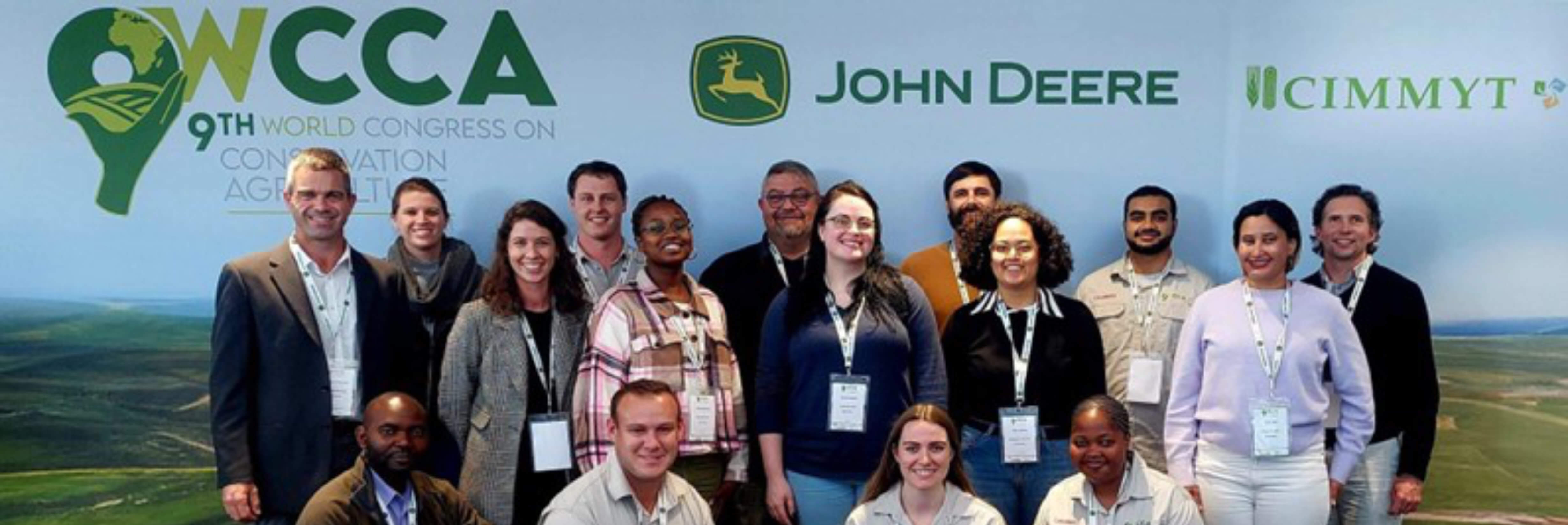The 9th World Congress on Conservation Agriculture (CA), held in Cape Town, South Africa, from July 22 to 24, 2024, was a spectacular event that brought together an impressive group of global experts. These specialists converged to address one of the most pressing and complex challenges facing modern agriculture today: the slow and uneven adoption of conservation practices, particularly in regions like Africa, where such practices could have the most profound impact. Building on the considerable momentum generated by the previous congress held in Switzerland in 2021, this year's event stood out as a beacon of hope, focusing on delivering practical, science-backed solutions designed to enhance the adoption and scalability of conservation agriculture across diverse landscapes.
The congress offered an unparalleled platform for the exchange of innovative ideas and actionable strategies, from pioneering methods of soil health quantification to the integration of livestock within cropping systems—a strategy that holds immense potential for both ecological and economic benefits. The primary goal of the congress was to propose practical solutions to enhance CA adoption. This in turn, can empower farmers with knowledge and tools that could help them combat the devastating impacts of climate change, improve soil health, and boost agricultural sustainability, not just in Africa, but on a global scale.
One of the most unique and impactful aspects of this congress was its focus on real-world, practical engagement. Unlike many conferences that remain strictly academic, this event included a series of groundbreaking sessions where farmers and researchers sat down together to have open honest discussions. These conversations provided deep insights into the tangible benefits and significant limitations of implementing CA practices, as well as the very real apprehensions farmers face when considering changes to their farming methods. It was a rare and eye-opening opportunity to delve into the day-to-day realities of farmers who are struggling to ensure the continued viability of their operations in the face of numerous challenges.
Adding an emotional dimension to the congress was a powerful short film titled “Roots So Deep.” This film offered a poignant look into the turmoil and trials that farmers in the United States of America face as they navigate the complexities of running their farms. The film highlighted a critical issue: the stark lack of communication between farmers and the insufficient sharing of knowledge regarding the impacts of CA—not just on the soil, but on the entire ecosystem. The message was clear. Farmers are already burdened with countless challenges, and access to valuable, life- and ecosystem-changing knowledge should not be one of them.
Despite the growing global recognition of the benefits of CA, the rate of adoption remains slow in many parts of the world, particularly in Africa. However, the congress also shone a spotlight on South Africa, currently the leading country in Africa in CA adoption. The country’s extensive research and successful implementation of CA practices have already begun to yield impressive results, showcasing the potential for transformation when these methods are applied effectively. The impact and benefits of CA in South Africa were not just discussed—they were celebrated, offering a powerful example for other regions to follow.
Experts from around the world, including the Middle East and Northern Africa, also shared their experiences, presenting research that pointed to similar challenges in implementing CA in their respective countries. Farmers in these regions recognize the undeniable benefits of CA, but the significant risks associated with its implementation, coupled with a lack of robust support from both the government and the private sector, have weighed heavily on their decisions to adopt these practices. The congress underscored a surprising and somewhat unsettling reality: the challenges faced by farmers in first-world and third-world countries are strikingly similar. In both contexts, farmers grapple with the same fears—risk, uncertainty, and a critical lack of reliable information regarding the practices they choose to adopt.
Attending this congress was nothing short of an eye-opening experience, offering a rare glimpse into the shared challenges that farmers across the globe face, regardless of their country’s economic status. More than just highlighting problems, the event was a powerful testament to the importance of knowledge sharing. It became increasingly clear that spreading information about CA is not just beneficial but crucial to the adoption of CA. Congresses like this play an invaluable role in facilitating the transfer of information while promoting hard-hitting conversations and global collaboration.
One of the most unique and rewarding experiences at this congress was witnessing the willingness to share solutions to these challenging issues. Researchers, armed with data and insights from their own countries, exchanged advice and perspectives with their peers from around the world. The exchange of knowledge didn’t stop there; farmers themselves also played a crucial role, offering advice and sharing experiences on behalf of other farmers from different regions. This mutual exchange of knowledge and experience was a powerful reminder of the collective strength and resilience of the global farming community including researchers. The 9th World Congress on Conservation Agriculture wasn’t just a conference—it was a pivotal moment in the ongoing effort to secure a sustainable future for agriculture.

